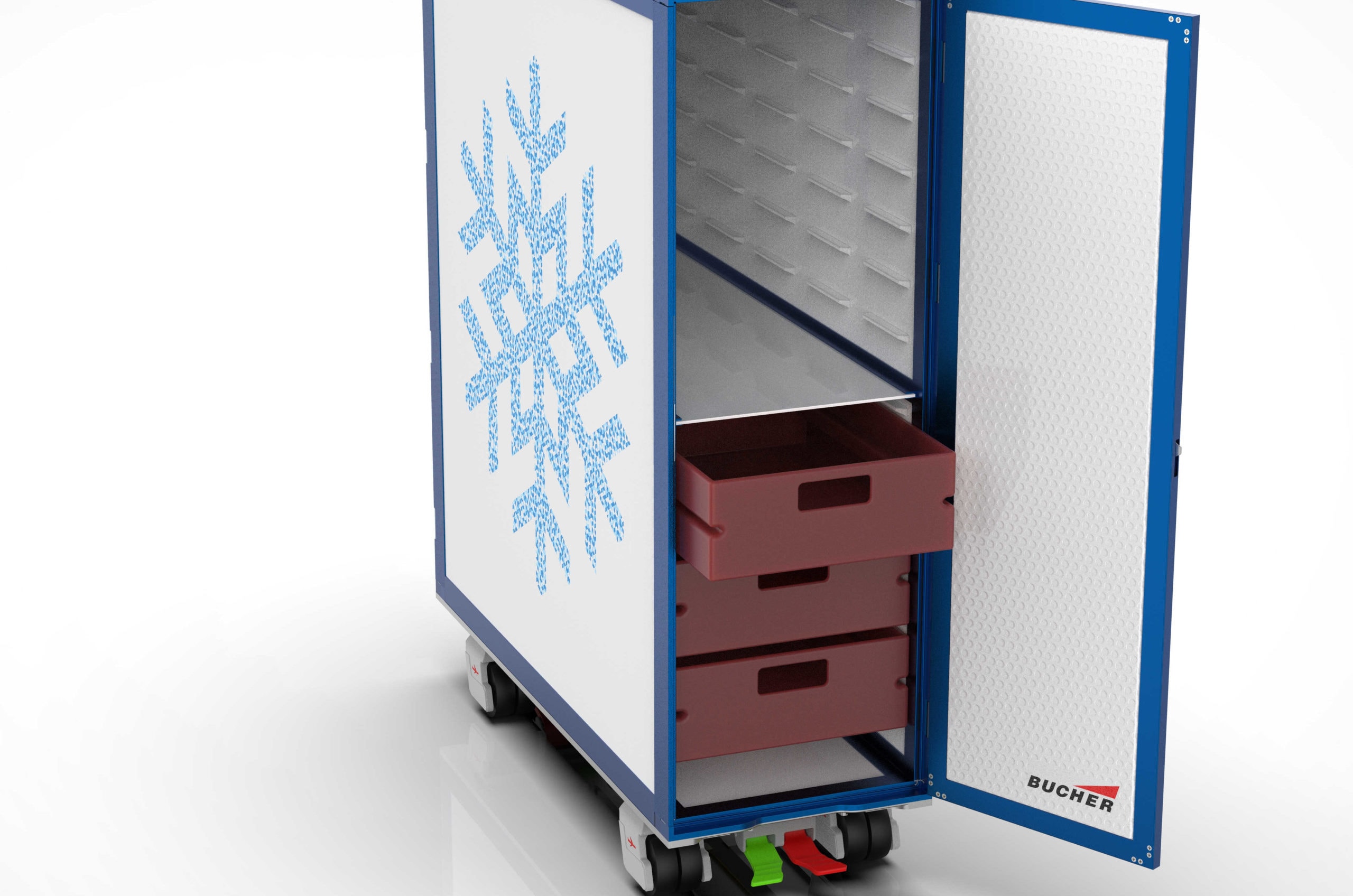Bucher’s New ARCTICart Removes Need for Expensive Chillers
Share

APEX Insight: ARCTICart, Bucher Aerospace Corporation’s new thermally insulated galley cart, has received Technical Standard Order (TSO) authorization from the Federal Aviation Administration (FAA).
Bucher Group has incorporated a non-metallic structural design alongside insulation technology used in pharmaceutical and human organ transportation into its new ARCTICart product, which is ready to be deployed by carriers following certification by the FAA.
The galley cart is able to keep contents below a temperature of four degrees Celsius for up to 20 hours without using chillers or other active cooling devices such as dry ice, power supplies or operating fluids, meaning there’s no reduction in the usable internal space of an ATLAS-sized cart.
Bucher Aerospace’s CEO Francisco Aguilera explained, “The ARCTICart program was launched with the ambitious and clear objective to present aircraft operators a solution to significantly reduce weight and power consumption of airplanes by allowing the removal of chillers from commercial aircraft.”
“The ARCTICart program was launched […] to significantly reduce weight and power consumption of airplanes by allowing the removal of chillers from commercial aircraft.” – Francisco Aguilera, Bucher Aerospace
The company says that, unlike with active refrigeration methods, temperature differences within the ARCTICart are minimal regardless of whether meals are stored in the top front drawer or bottom back tray. Other benefits include the eradication of the high maintenance costs and extra cabin noise associated with chillers.
Gustavo Romero, director of Europe for Bucher Aerospace, explains the ARCTICart has been in development since 2015 at the company’s facility in Everett, Washington. “That is also where the carts are going to be assembled,” Romero continued. “Production is scheduled to start later this year, and then to ramp up early 2019.” A half-size cart is currently in development.
Romero believes the ARCTICart’s features will significantly decrease the total cost of ownership for the product and convince the airlines it is currently in discussion with to purchase the product.
Moving forward, Bucher says it is committed to incorporating industry feedback into its product family to meet different catering strategy demands.


